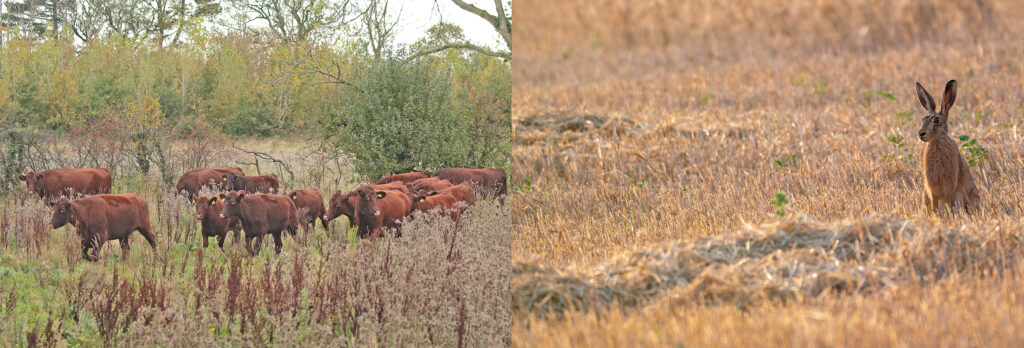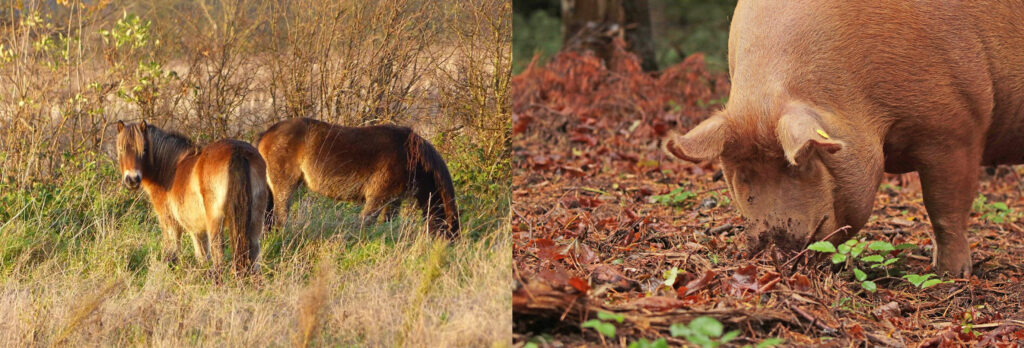Wild Ken Hill has joined the Zero Hour campaign in support of the Climate & Ecological Emergency Bill – here’s why …

Images: Curlew on the marshes, heathland and cover crops of poppy and grasses – Wild Ken Hill
The CEE Bill is a cross-party Bill being drawn together to tackle the climate and nature emergency with much stronger and more joined-up legislation.
We are supporting the campaign because we do not feel that the current and forthcoming legislation for the agricultural and environmental sectors is strong enough in addressing climate and ecological breakdown.
In particular, we feel that the recently-enacted Environment Bill – although landmark in many ways – remains weaker than required in several areas, not least on our watercourses. There is clearly a public appetite for the government to ensure our rivers are cleaner and subject to much less abstraction, and we expect that – if passed – the CEE Bill would help to address these issues.
Those readers working in the agricultural and environmental sector will know that from 2024 existing payment schemes for land managers will be replaced by the Environmental Land Management (ELM) scheme. DEFRA continues to drip feed information about ELM, but we still do not have a full picture of the final shape of the scheme. We have concerns that the premise of this hugely important scheme – public money for public goods – is being eroded behind closed doors and not distinct enough to undo the damage of the EU’s Basic Payment Scheme, which is now widely considered to have been a major driver for UK agriculture’s negative impact on the natural environment over the last few decades.

Images: Red Poll Cattle (Les Bunyan) and Brown Hare
We need this scheme to live up to its original promise if we are to address both nature loss and climate change. For example, GHG emissions from the UK agricultural sector have not dropped since 2008, and it now represents 10% of UK emissions, despite contributing 0.5% of GDP, making it one of the most carbon intensive sectors in the economy. It is clear we need stronger legislation if we are to increase the lacking pace of change in the sector.
We also feel that there is a lack of joined-up thinking between ELM and foreign policy. We are not the first farmers to point out that raising the environmental standards of our own food production through ELM while signing Free Trade Agreements with major agricultural exporters with lower food standards will only lead to a leakage of the UK’s carbon footprint to other countries, resulting in no decrease in global emissions, and perhaps an increase. Concerningly, the UK also counts the emissions from producers in the UK but currently takes no responsibility for GHGs emitted abroad by the production of our imports. This approach not only puts British farming at risk, but also gives a totally false picture of progress.

Images: Livestock enriching biodiversity – Exmoor Ponies and Tamworth pig Hare (Les Bunyan)
By joining the Zero Hour campaign in support of the CEE Bill, we hope to provide support to legislation that would begin to address the above issues. We also join our fellow rewilders at Knepp in Sussex, as well as several organisations that we work with on a regular basis, including the Beaver Trust, the BTO, the Nature Friendly Farming Network, and Rewilding Britain.
Speaking to Dom, Project Manager here, he said: “We are delighted to support the CEE Bill. The Wild Ken Hill project set out to restore nature and fight climate change. This Bill would allow exactly those aims to be pursued with real vigour across all sectors of the UK, and so we wholeheartedly offer our support, and encourage everyone to get behind it”.


